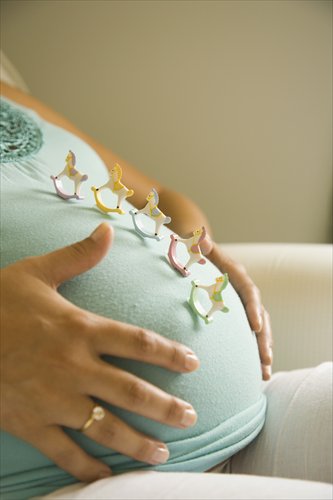HOME >> METRO BEIJING
Avoiding the flock
By Li Lin Source:Global Times Published: 2014-5-26 19:28:01

People born in the Year of the Sheep are considered passive, loyal and generous, but these attributes are overshadowed by the zodiac's overall unlucky stigma. Photo: IC
Many superstitious Chinese couples are rushing to get pregnant to avoid having a child born in 2015, the inauspicious Year of the Sheep.The Chinese zodiac is determined by the lunar calendar. Babies born between January 31, 2014, and February 18, 2015, are "horse babies," while those born between February 19, 2015, and February 7, 2016, are "sheep babies."
The Chinese zodiac, a set of 12 animal signs that spans a 12-year cycle, is believed to guide a person's luck and personality.
As the Year of the Horse, 2014 has ushered in the biggest pregnancy boom in China since the Year of the Dragon, arguably the most auspicious zodiac sign, two years ago. Many Chinese consider "horse babies" energetic and healthy in stark contrast to their sheep counterparts, who are deemed meek and destined for slaughter rather than success.
A popular Chinese saying holds that people born in the Year of the Sheep are cursed with bad luck and poor destiny.
Liu Haixin, a 27-year-old mother-to-be, is due to give birth to her first baby in July. She married in September 2013 and fell pregnant the following month.
"Some elderly people say that 'sheep babies' are unlucky. Although I'm not superstitious, I still took it into consideration when discussing when to have a baby with my husband," said Liu. "Another reason is that I don't like the zodiac signs of the monkey, chicken and dog [that follow the sheep]. I will be too old to have a baby after those years, so I decided to get pregnant sooner rather than later."
There is lively debate among mothers-to-be on mmbang.com, a parenting website, about the zodiac's influence on babies.
A 28-year-old Tianjin woman posted about her worries over having a "sheep baby," citing fears he or she will suffer a bitter fate.
Another woman from Yangzhou, Jiangsu Province, said her mother was pushing her to get pregnant to have a "horse baby" or else wait until the Year of the Monkey in 2016.
The most popular saying about the fate of people born in the Year of Sheep is "shi yang jiu bu quan," which means 9 out of 10 people born under the zodiac sign face a bitter destiny.
According to a People's Daily report, before the Xianfeng period (1850-1861) of the Qing Dynasty (1644-1911), the sheep zodiac represented safety, richness and luck.
However, it fell out of public favor after Empress Dowager Cixi and other loathed officials, including Zeng Guofan and Li Hongzhang, were born in the Year of the Sheep. The masses subsequently linked the sheep zodiac with bad luck.
But folklore expert Gao Wei said there is no historical connection between the Year of the Sheep and bad luck.
"Historically, the sheep zodiac was a symbol of auspiciousness," said Gao. "The Taoist temple Qingyanggong in Chengdu, Sichuan Province, features a bronze sheep statue that also shares features of all the other Chinese zodiac animals. If the sheep is a symbol of evil, how can it be there?"
Qingyanggong was first built in the Zhou Dynasty (1046 BC-256 BC). The bronze sheep has a tiger's paws, a horse's mouth, a chicken's eyes, a mouse's ears, a snake's tail and so on, combining the auspicious features of every zodiac animal into one statue. It is said that touching the statue can bring people luck and help women give birth to sons.
Further countering the Year of the Sheep stigma is the list of successful people born under the zodiac, including Chinese Premier Li Keqiang and American tech entrepreneurs Bill Gates and Steve Jobs.
Posted in: Metro Beijing